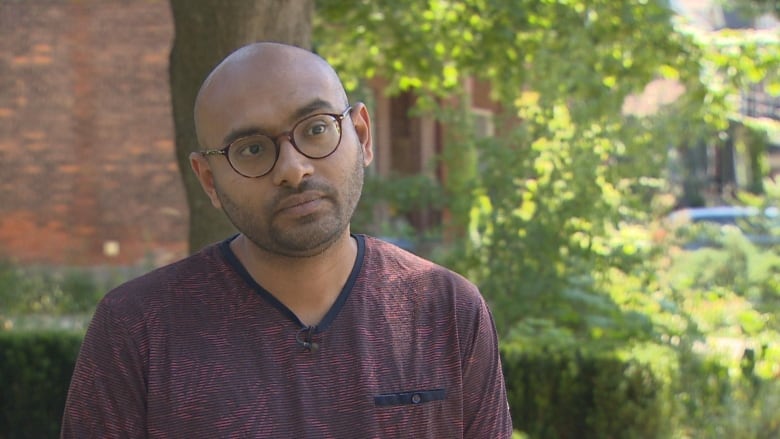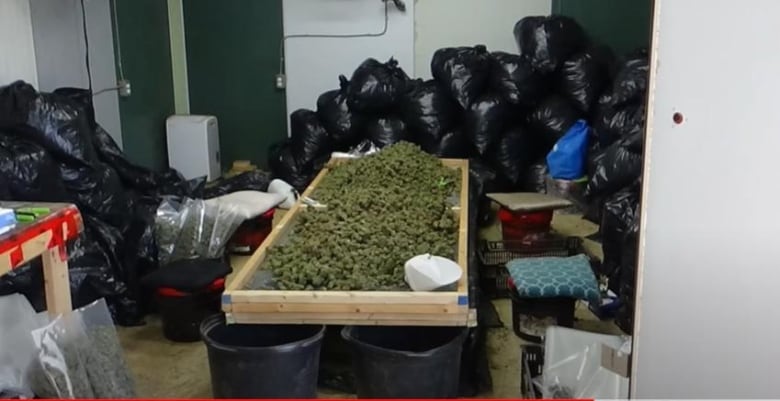'Rescued' Mexican citizens could be worse off after Ontario police raids last month, advocate warns
Migrant workers who get “rescued” in anti-human trafficking raids in Canada may find themselves worse off, and can even end up getting kicked out of the country or put behind bars, an advocate says.
Syed Hussan, the executive director of the Migrant Workers Alliance for Change, made the comments to CBC News this week after Mexico's consulate in Toronto said more than 60 Mexicans were picked up in two police raids in Ontario last month.
It's not clear where they are now or how they're doing because the consulate won't provide any more details about the raids or the status of the alleged victims. But Hussan says from past experience, having their employers or homes raided doesn't always benefit migrant workers.
“They lose their income, they lose their belongings, they are not able to recoup any other wages. They're often deported. In some cases, they're imprisoned,” Hussan said in an interview.

Even if there are abuses regarding the workers' jobs, pay or living arrangements, Hussan says negotiating with employers, civil court action or complaints to the Ontario Ministry of Labour can bring about better solutions.
“The police don't have the ability to take the money from the employer and give it you,” he said.
Ultimately, according to Hussan, workers are best served by changes to labour and immigration laws that will give them more rights and more routes to legal immigration status.
“The language that we use, that the sex worker movement also uses, is, ‘We want rights, not rescue,'” he added.
Authorities tight-lipped about September raids
According to a Spanish-language news release from Mexico's Ministry of Foreign Affairs that was tweeted by the Mexican consulate in Toronto on Oct. 5, 49 Mexican citizens were “rescued” in an abandoned warehouse during a police raid on Sept. 22.
The raid occurred either in the northern part of Toronto or north of the city. The precise location isn't provided and is not clear in the language of the release. It also doesn't say which police service conducted the raid.
The Mexican Consulate would not answer any questions or provide any more specific information about the raid or the people involved.
El Consulado General de México en Toronto informa: <a href=”https://t.co/73Img4hmpA”>pic.twitter.com/73Img4hmpA</a>
—@ConsulMexTor
El Consulado General de México en Toronto informa: <a href=”https://t.co/gnwj82mAD5″>pic.twitter.com/gnwj82mAD5</a>
—@ConsulMexTor
The release says the Mexicans were possibly victims of human trafficking and labour exploitation and says they are being offered consular assistance.
CBC News reached out to Global Affairs Canada for its reaction to the case. The federal department responded by saying: “We believe that your query would be best addressed by the local policing authority.”
The Canadian Red Cross confirms that it provided support, including safe lodging, meals and personal services. The organization says it will not provide further details out of respect for the Mexicans' privacy.
Another news release tweeted by the consulate on Oct. 3 says 14 Mexican women were found in a home in Thorold, Ont., after a raid by Niagara Regional Police.
The release says the women were workers and presumably victims of human trafficking. It says they were turned over to the Canada Border Services Agency (CBSA) and offered consular assistance.

As with the Sept. 22 raid, the consulate would not provide further details about the Mexicans involved, including their current status or location. The CBSA has not yet responded to questions from CBC Toronto about the case.
When asked about the both raids and the Mexican citizens involved, Niagara Regional Police directed CBC Toronto to information released late last month about a 10-month, multi-jurisdictional organized crime investigation called Project Gateway.
On Sept 14, Niagara Police say raids were conducted at several locations across southern Ontario, including Thorold.
Along with drug trafficking, cross-border smuggling and other criminal activity, police allege that suspects also employed foreign workers at cannabis production sites and hotels.
However, among the numerous charges the 20 suspects are facing, none directly relates to human trafficking.
This “Eyes on Trafficking” story is reprinted from its original online location.
 ABOUT PBJ LEARNING
ABOUT PBJ LEARNING
PBJ Learning is a leading provider of online human trafficking training, focusing on awareness and prevention education. Their interactive Human Trafficking Essentials online course is used worldwide to educate professionals and individuals how to recognize human trafficking and how to respond to potential victims. Learn on any web browser (even your mobile phone) at any time.
More stories like this can be found in your PBJ Learning Knowledge Vault.
EYES ON TRAFFICKING
This “Eyes on Trafficking” story is reprinted from its original online location.
ABOUT PBJ LEARNING
PBJ Learning is a leading provider of online human trafficking training, focusing on awareness and prevention education. Their interactive Human Trafficking Essentials online course is used worldwide to educate professionals and individuals how to recognize human trafficking and how to respond to potential victims. Learn on any web browser (even your mobile phone) at any time.
More stories like this can be found in your PBJ Learning Knowledge Vault.
